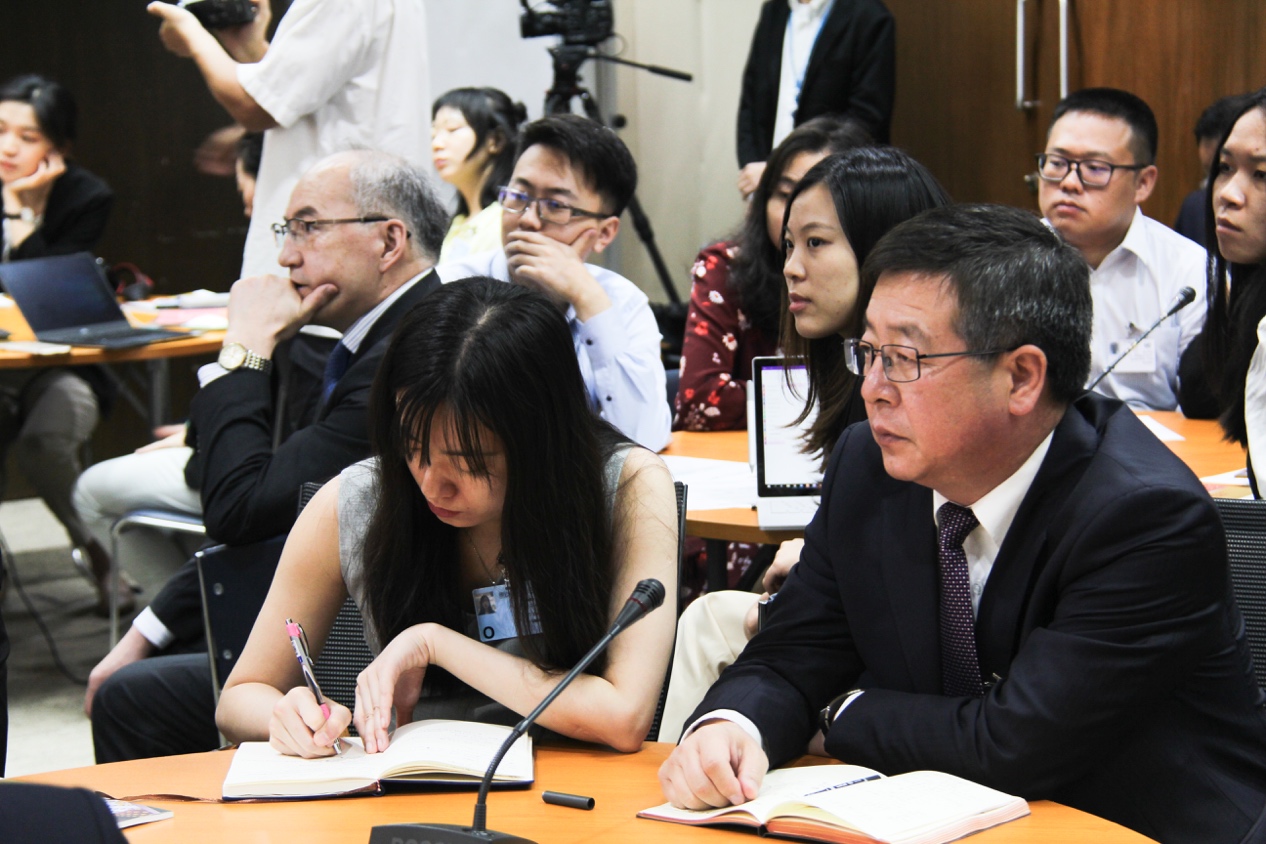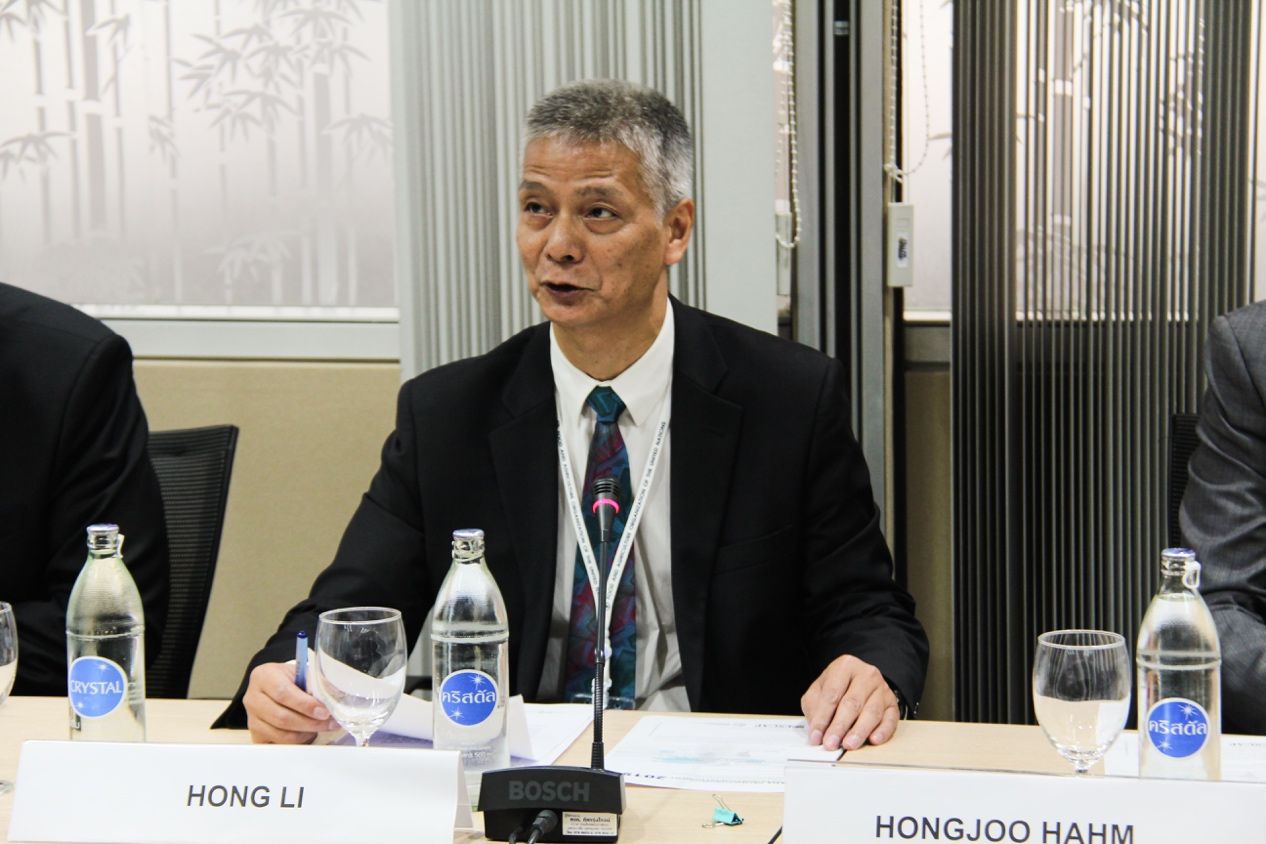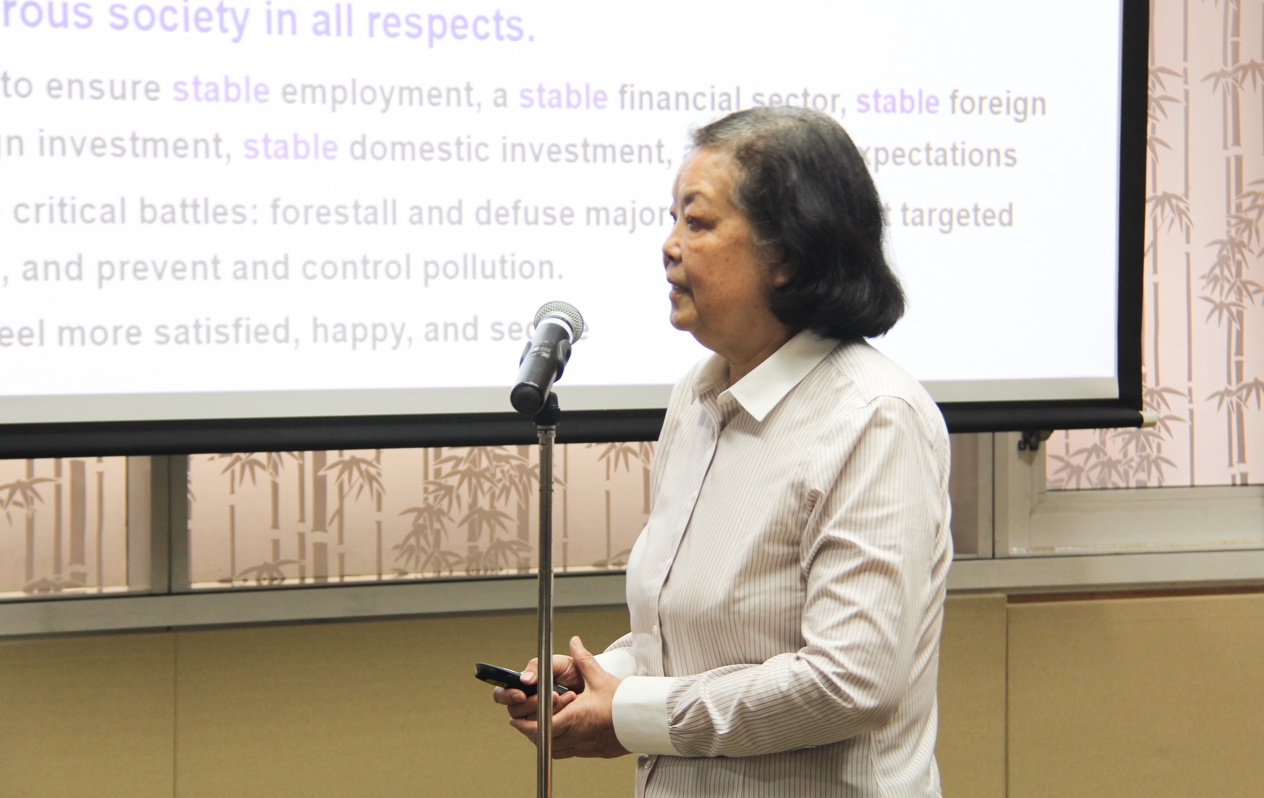Bangkok (People's Daily) - The Sixth Asia-Pacific Forum on Sustainable Development (APFSD) opened in Bangkok, Thailand, today with a resounding call for bolder steps to be taken to ensure greater empowerment, inclusiveness and equality if the region is to realize the ambitious goals of the 2030 Agenda for Sustainable Development. The opening ceremony included a side event organized by the UN Economic and Social Commission for Asia and the Pacific (ESCAP), which remarked on China's transition towards sustainable development and its implications for Asia and the Pacific.

Audience members at the event take notes (Photos: Guo Yuqi/People's Daily)
“Within 40 years, China’s GDP grew from 367.9 billion RMB in 1978 to 90 trillion RMB in 2018,” reported Li Hong, permanent representative of China to the ESCAP. He then suggested four aspects for the Asia-Pacific community to face the unstable global economy: Firstly, insisted on an openness of the region; Secondly, insisted on building up connectivity and networking, including infrastructure construction; Thirdly, insisted on building innovation-development models; Fourthly, insisted on the sustainable development path.

Li Hong, permanent representative of China to the ESCAP gives a speech
Hongjoo Hahm, deputy executive secretary of the ESCAP, spoke highly of China’s past efforts on the economic and social development of the Asia-Pacific Region. He said, “China is now the engine to the world economy and the largest economy in Asia and the Pacific.” According to Hongjoo Hahm, China’s economic transformation is not only about the change from a manufacture to a service based economy, but also the emergence of knowledge and innovation based industries and a strong focus on sustainable development.
After the keynote speeches, a panel discussion was held by Li Shantong, former director general of the Department of Development Strategy and Regional Economy, Development Research Center of the State Council of the People’s Republic of China; Li Genxin, chairman and CEO of China Polylactic Acid Industry Alliance Union & New Material Science Park; Mustafizur Rahman, joint chief of General Economics Division Bangladesh - tbc; and Kirida Bhaophichitr, director for Economic Intelligence Service of Thailand Development Research Institute.

Li Shantong, former director general of the Department of Development Strategy and Regional Economy, Development Research Center of the State Council of the People’s Republic of China presents at the panel discussion
One of the highlights of this year’s forum on sustainable development is the launch of the Asia-Pacific Sustainable Development Goal (SDG) Gateway, an interactive analytical tool developed by the ESCAP that assesses regional and sub-regional SDG progress at goal, target and indicator levels. The innovative methodology for progress assessment can be used to inform follow-up at country-level and hence review the progress of implementation.
Organized by the ESCAP, the APFSD has provided a unique platform for countries to share perspectives, challenges and best practices since 2014 as they progress toward implementing the SDGs. It is also an opportunity for governments to present their Voluntary National Reviews and assess Asia-Pacific’s collective efforts in realizing the Regional Road Map for implementing the 2030 Agenda adopted by these countries in 2017.


